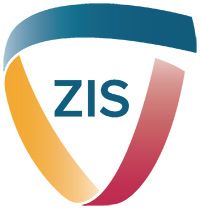Seeking True North
Everyone makes bad decisions; not everyone learns from them - and that's a shame because, really, making the wrong choice is a chance to gain wisdom.

We’ve all been there. That moment when, instead of pointing due north, the needle of your moral compass starts to waver, wobble and spin. You know what you ought to do, but you really don’t want to do it. And that’s the moment integrity comes into play: the internal framework that helps us decide whether something is right or wrong. We don’t always pay attention to it. We’re all human, after all – and wisdom often comes with making the wrong choices. But there’s a reason why integrity is one of ZIS’s core values: it makes us better humans in a better world.
“Integrity is about doing the right thing even when nobody’s looking,” says David Markus, Upper School Principal. And living with integrity, he points out, isn’t just about yourself, but the stability and peace of your community, too – a family, a school, a village or a country. “If we can’t trust each other to do the right thing, that hurts everyone.”
Of course, integrity is not an innate quality. It needs to be taught, which is why any adult in a child’s life has a duty to model integrity to them. Much of the time, that’s about practising what you preach, points out Marlo Frontiera, Lower School Counselor. “Helping children develop integrity and modelling it in our own lives involves a combination of teaching, demonstrating, reinforcing the values of honesty, fairness and responsibility. We can’t just tell children to be a certain way. We actually have to do it.”
Children often learn the most from the little things in the home, she says: the way we speak to each other at the dinner table or talk about our jobs or friends. “It might seem like not a big deal. But it’s teaching a child what you think about what is and isn’t OK.”
Modelling integrity at school and in the home has become even more important over the past few years, says David, with the advent of social media and a change in public leadership style. “Changing your mind in public has become a lot harder. And there are so many people in the public eye who put down others, treat them badly, and lie like crazy.”
Could having integrity help us to be happy, less stressed, have better relationships and improve our communities? It certainly plays a crucial role in clarifying our decision making, offering guiding principles to frame our thinking.
The way through this, he says, is to celebrate those in the public eye who do admit mistakes: the team coach who concedes their strategy didn’t work; the company that believes in its mission and remains true to it despite criticism; the politician who admits they got it wrong. “Our job is to highlight the ones who are doing it right, amplify their voices, build them up, and call it out when others are not acting with integrity.”
At ZIS, integrity is woven throughout the school day, says Marlo. “Along with being role models ourselves, we discuss those values openly within the classroom. We use stories and books. We see it, frame it and name it: for example, a teacher will say: ‘I see you’re using your integrity and telling the truth right now.’ We reinforce day-to-day integrity on the playground, at lunchtime, in the classroom – everywhere where children problem solve and communicate with their friends. And we connect having integrity with our feelings – because when you have integrity, it feels pretty good.”
Books for all ages which align with integrity are a perfect learning tool: Marlo cites Wonder by R. J. Palacio – the story of a home-schooled boy with a facial deformity who goes to school for the first time – as a brilliant jumping-off point for talking about integrity with children. “We have some pretty deep discussions!” she says. “It has some amazing threads around supporting another person, being honest and apologising and having to admit that you’ve made a mistake and that you would do it differently next time.”
And teachers, too, need to model integrity, says David. He recalls a time where he had responsibility for a colleague who frequently made mistakes. He cared for that person, he says, and tried to convince himself that they would improve. When his superiors asked him if his colleague was making progress, he didn’t tell the truth.
“I was lying to myself, and I was lying to them,” he remembers. “That person ended up being at the workplace for two years too long, and it was damaging. All because I was afraid. Since then, I’ve tried to be honest. I will say: I care for you a lot, but this is the truth, and if I don’t tell the truth, the situation will get worse. We have to work on this, and if it doesn’t get better, it can’t continue.”
David has two posters in his office: one reads: ‘Let’s make better mistakes tomorrow’, and the other: ‘Ten things to say to kids every day’. “One of those things is ‘sorry’,” he says. He recalls a student who turned in low-quality homework. “I was sharp with them, and they broke down crying. They said they had struggled for two weeks trying to get this work done, and they got stuck. I felt terrible. If I’d been able to say sorry… that’s integrity. I think students respect a teacher who can do that: they look for teachers to own up to their mistakes, just as they are supposed to.”
Nobody’s saying that acting with integrity is easy. And certainly, in the short term, making the wrong choice can seem very easy. “There’s always a balancing act,” says Marlo: “‘Do I tell on my best friend because she took something out of someone’s lunchbox?’ What is the choice you make when you are trying to be a good friend, but you also want to act with integrity? It can be very difficult, and that’s where discussion comes in.”
David agrees. “It’s hard because our minds play tricks on us. They tell us that something is not truly a lie, or that we’re just trying to make it easier for someone else. But often, whether we know it or not, we’re just protecting ourselves. Normally, when you’re honest with someone or you challenge them, they react negatively. They get defensive, they push back. And most of us don’t like that pushback. So we avoid it. Or if you make a mistake, it’s the hardest thing to own your mistake. Very few people have the courage to do it.”
But it’s worth it – because integrity can truly be a path to a better life. It helps us to be happy, less stressed, have better relationships and improve our communities. It plays a crucial role in clarifying our decision making, says Marlo, becoming a guiding principle to frame how we think.
“And it helps us to avoid regret, because if we act with integrity, we’ve made decisions that align with what we believe. This, in turn, helps us to build self-confidence. When you have inner consistency in what you believe, then your actions align with your values. This boosts your ability to make tough choices, because you know where you’re coming from. You can stand firm under pressure.”
So when our moral compass starts to flicker into life, perhaps we should consider just how vital integrity is to ourselves, and everyone around us, and ask: ‘Is fighting my personal sense of integrity worth it?’ As a self-confessed “philosophy guy”, David suggests considering the Aristotelian concept of eudaimonia. “In philosophy, this means living a good life in true happiness. If you don’t lie, you don’t have to make up other lies to cover your lies. For me, having integrity – living in line with your values, telling the truth, being true to your word – is the secret of being happy. And it’s truly an easier path.”


